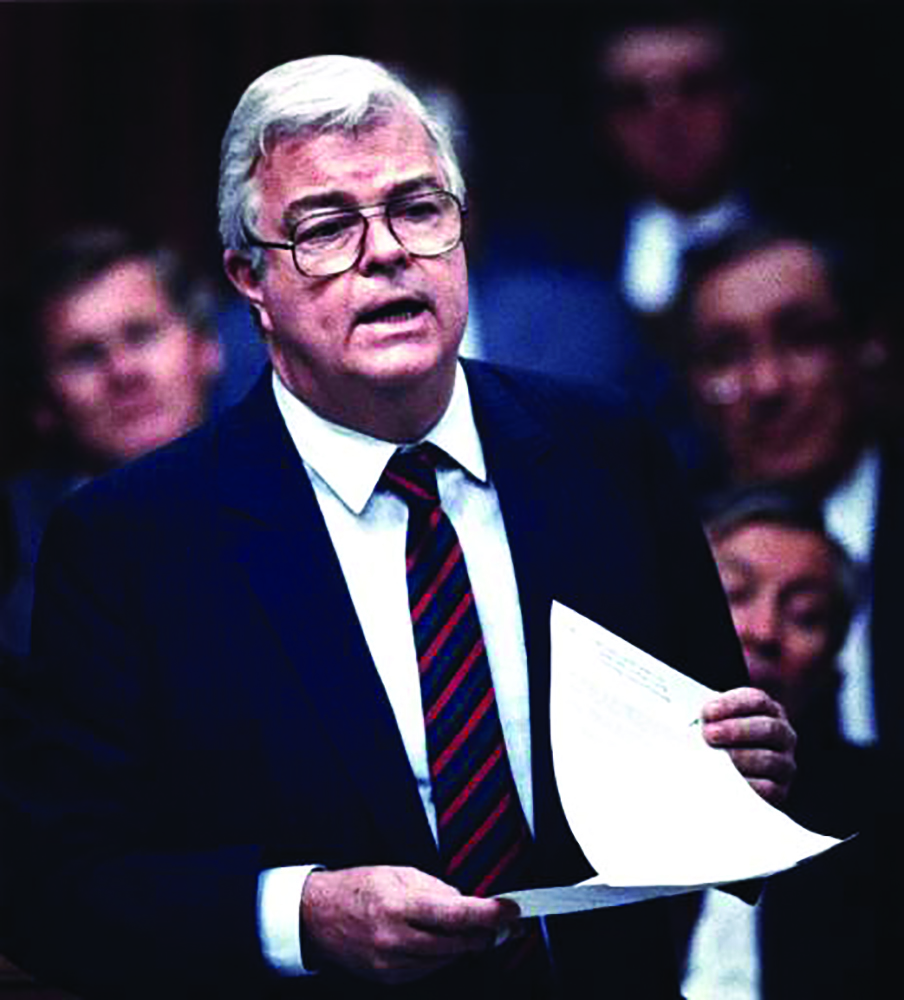It has almost all been said. In the week since the death of John Crosbie, stories of his list of accomplishments in various political arenas have been told and told again.
Crosbie was a giant and he was one of those “great men of history” who weren’t just towed along by events but instead shaped them.
There is no question his accomplishments will be remembered and his place in history is assured but, while the victories of John Crosbie were many and well documented, I humbly suggest to you today that, despite fisheries and Hibernia and all things in between, arguably the greatest accomplishment of Crosbie came in a most unlikely forum; a Liberal leadership campaign.
Battle for leadership
In 1969, John Crosbie took on Joe Smallwood in a battle for the leadership of the Liberal Party. Crosbie, who had come from municipal politics in St. John’s, was already in the race which started as a convention to replace the retiring Joseph Roberts Smallwood.
The problem is that JRS, despite announcing he was stepping down, wouldn’t retire. With the leadership convention already set up and moving forward and John Crosbie and others already in the race, Smallwood announced that he was running for the Liberal leadership and would basically try to succeed himself as party leader.
Now in a very important decision, John Crosbie stayed in that Liberal leadership race in a battle that in his heart of hearts he knew he couldn’t win. Crosbie didn’t win but in losing he forever changed the course of Newfoundland’s political history.
Crosbie’s challenge to Smallwood was a bitter battle and it tore the Liberal party apart at the seams. Smallwood had said he was running to keep the party from falling into the wrong hands but everyone in Newfoundland and Labrador knew that the hands to which he was referring were John Crosbie’s hands.
An intense battle
The pre-convention battle for delegates was intense and was fought in every district in the province as all candidates sought to get their “slate” of delegates to the convention elected.
Each electoral district was to send 24 delegates plus the executive to that convention. John Crosbie had a superb well-oiled organization and a group of very committed workers, but as we know in politics that isn’t always enough for victory.
There were other factors. Smallwood was two decades in power and every political favour amassed over twenty years was called in and every trick in the book was used.
History records the final delegate count was 1,070 for Smallwood and 440 for John Crosbie. Alex Hickman, another serious candidate, received 187 delegate votes. He too, like Crosbie, would later leave the party and sit in a PC government and serve in cabinet.
Exposing Smallwood
The reaction to the result at the convention was immediate. The television cameras had captured and played and replayed the anger of many of the delegates. Things would never be the same again.
The Liberal Party was torn asunder and, although most people didn’t know it that day, the sun was beginning to set on one-man rule in post-Confederation Newfoundland politics.
John Crosbie had “exposed” Joe Smallwood for what he was. He had shown the emperor had no clothes. People watching the blood sport of convention politics on TV through the campaign and at the convention itself came to know that Crosbie in defeat had accomplished something very important. He showed you could stand up to the Liberal regime, speak your mind, and it wouldn’t be the end of the world.
A final irony to it all. When Smallwood died he was honoured by being “laid in state” at Confederation Building so that members of the public could pay their respects. The ashes of John C. Crosbie were also given that particular honour for long and valued service to Newfoundland and Labrador.
